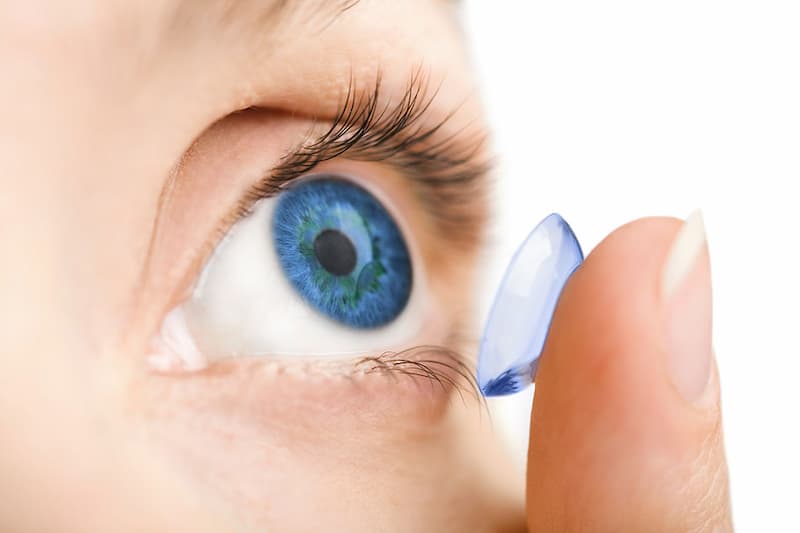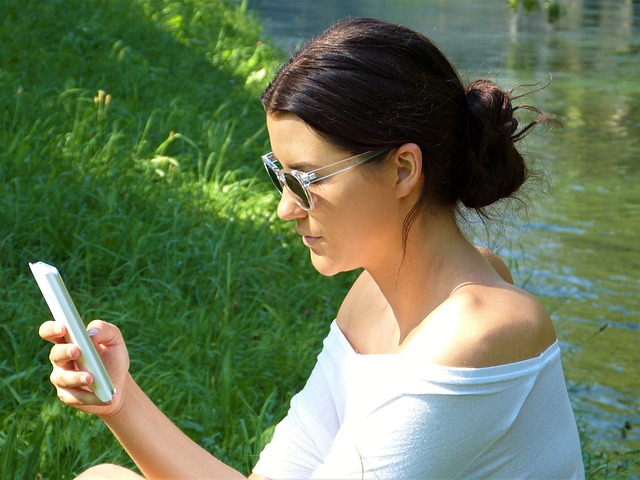Can You Wear Contacts before An Eye Exam? All You Want to Know

Although contact lenses have many advantages, they operate somewhat differently from eyeglasses. For instance, it’s simple to take off your glasses before visiting your eye doctor for an eye exam, but you can’t always do the same with contact lenses.
So when can you wear contact lenses to an eye exam, and when should you remove them first? The type of eye exam you’re having will typically determine whether or not you should wear contacts. Don’t wear contacts to routine eye exams, do wear contacts to contact lens exam follow-ups.
Continue reading to discover more about the recommendations we make for patients who wear contact lenses and come to our office.
Not All Eye Exams Are the Same
It’s crucial to remember that not all eye exams follow the same procedures before we continue. The rules for how to prepare for routine eye exams for adults and follow-up appointments after contact lens exams are somewhat dissimilar.
Routine Eye Exams
Routine eye exams are meant to evaluate the overall health of your eyes and identify any vision or ocular health problems for which you may be at risk. The American Academy of Ophthalmology recommends that adults with no known vision or eye health problems visit their eye doctor for these exams once in their 20s, twice in their 30s, and as recommended by their optometrist after age 40.
Contact Lens Exams & Follow-Up Appointments
The majority of routine eye exams also include a few extra steps for contact lens exams in addition to everything else. Their purpose is to help patients find suitable contact lenses for their eyes and vision needs. Patients who undergo these examinations and are fitted for contact lenses typically need to make a number of follow-up appointments with their ophthalmologist to ensure the lenses continue to fit and work properly.
When To Wear Contacts (& When Not To)
The type of eye exam you are having will typically determine whether or not you should wear contacts. Here’s our advice:
Don’t Wear Contacts to Routine Eye Exams
Your eye doctor needs to be able to see how your eyes work on their own for a routine eye exam to be effective. They may have a harder time figuring out the prescription you require if you have your lenses in during the examination.
It is best to take out your contact lenses at least two hours before your scheduled appointment if you are going for a routine eye exam. Your eyes will have plenty of time to return to their normal state before the exam starts this way, and your eye doctor will be able to accurately examine them.
Finally, even though you shouldn’t wear them, make sure you bring your contact lenses with you to the exam. If necessary, this will enable your doctor to replace them more effectively.
Do Wear Contacts to Contact Lens Exam Follow-Ups
You obviously won’t be able to wear contacts if your appointment is to get fitted for your first pair—but you should wear them to any required follow-up exams afterward. This is due to the fact that those follow-up exams are intended to evaluate the comfort and efficacy of your lenses, so your eye doctor must observe them in use.
Arriving at a contact lens follow-up exam with your lenses in will also let your eye doctor see whether or not you’ve been wearing them properly. If you haven’t, your eye doctor will be able to advise you on how to utilize your lenses to their fullest potential.

What Do You Need for Your Eye Exam?
Now that we know what type of appointments you can wear your contact lenses to, it’s time to take a deeper look at the eye exam process and how you can prepare for it.
We always ask our patients to bring in certain information so we can provide the most thorough, convenient experience possible, even though we personalize your exam to meet your needs.
Before you come in for your appointment, please make sure you bring:
Your Insurance Information
Numerous medical and vision insurance companies receive direct billing from us. Please visit our Insurance & Payment Information page for more information on these providers.
Vision insurance typically covers costs associated with eyeglasses, contact lenses, and routine eye exams. Medical insurance, on the other hand, can help cover costs associated with eye disease treatments, emergency eye care, and medications.
If you’d like more information about what your plan might cover, please contact your insurance company.
Your Current Lens Prescriptions
We always take the time to check that your eyeglasses and contact lenses are current and giving you the clearest vision possible.
If you typically wear contacts or glasses, please bring them with you to your appointment. If new eyewear is required to meet your needs, we’ll let you know and update your prescription.
A List of Your Current Medications
Not only can medications help manage and treat a number of conditions, they can also have side-effects our team may need to address.
For instance, the dry eye syndrome is linked to a number of drugs, including beta blockers, antidepressants, birth control, and antihistamines. We might want to take a closer look at your current prescriptions if you experience symptoms of this condition to see if they might be a contributing factor.
Your Personal & Family Health History Information
Understanding the state of your eyes requires looking at any past medical issues that might have increased your likelihood of developing eye issues. Family history of eye diseases like glaucoma and age-related macular degeneration could also increase your risk of eye diseases and conditions.
Other health problems that could affect your eyes include:
- Diabetes
- Sjögren’s syndrome
- Parkinson’s disease
- Vitamin A deficiency
- High blood pressure
A Calendar Or Planner
As soon as we’re done with your eye exam, we’d be happy to schedule your next one!
If you have a specific eye concern that we want to monitor or treat, we may request more frequent exams than we typically recommend. You are welcome to bring a calendar or planner so you will always be aware of the date of your next eye exam.
As the time for your next appointment approaches, we’ll also send reminders.
What Diseases Can Be Seen With Dilation?
Our eyes also get older as we age. As a result, conditions like retinopathy, macular degeneration, and glaucoma may develop. The majority of adults ought to have a dilated eye exam annually. The macula, the retina, and the optic nerve can all sustain damage more frequently to the eye, so dilation enables the physician to see them.
- Diabetic Retinopathy – occurs as a result of abnormal blood vessel growth, swelling, and blood vessel leakage in the retina. A person’s vision may become blurry or distorted if untreated, and eventually blindness may set in.
- Macular Degeneration – This is usually brought on by the buildup of deposits beneath the retina and/or the atypical growth of blood vessels, both of which are related to damage to the retina. Although macular degeneration cannot be cured, your doctor may suggest treatments that could halt the disease’s progression.
- Glaucoma – Damage to the optic nerve is the cause of this. Due to its slow progression, glaucoma typically has no symptoms, but a dilated eye exam can easily identify it. Glaucoma can cause permanent blindness if it is not treated.
The doctor can identify these problems early on by performing routine dilated eye exams. Before significant harm is done, treatment to stop or slow the disease’s progression can start.
The Do’s and Dont’s of Dilation
There are a few things you should be aware of after a dilated eye exam because of the enlarged pupil and the excess light entering the eye. Your vision may become hazy and light-sensitive after dilation. Remember these tips for after your exam:
Don’t:
- Drive after your exam
- Spend time in bright light for long periods of time
Do:
- Have someone drive you home
- Wear sunglasses
- Call your doctor if your eyes stay dilated longer than 24 hours
Your doctor can examine your eyes thoroughly and painlessly with dilated eye exams. Follow their recommendations for dilation and eye exams to prevent and treat diseases before they affect your vision.
Read about